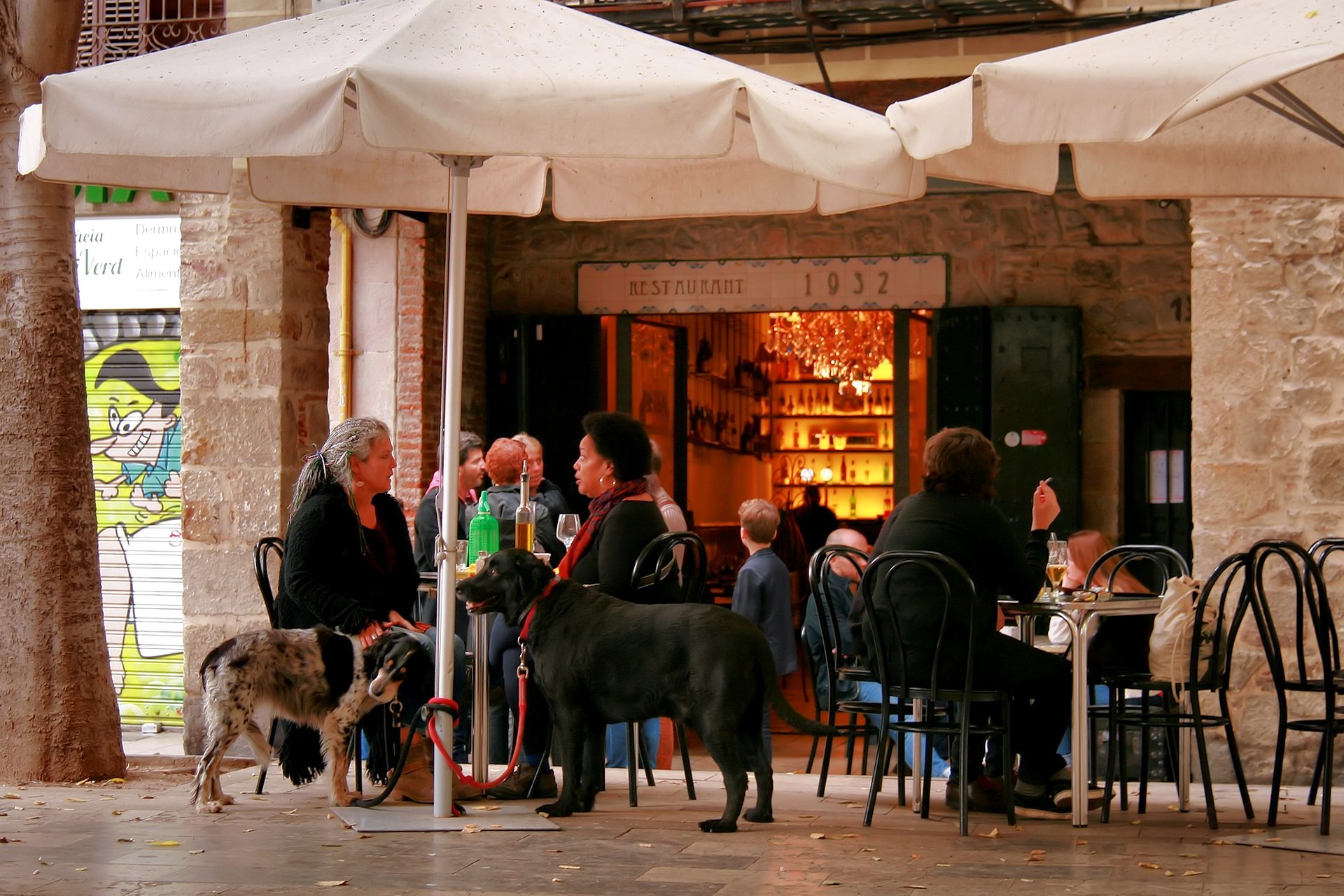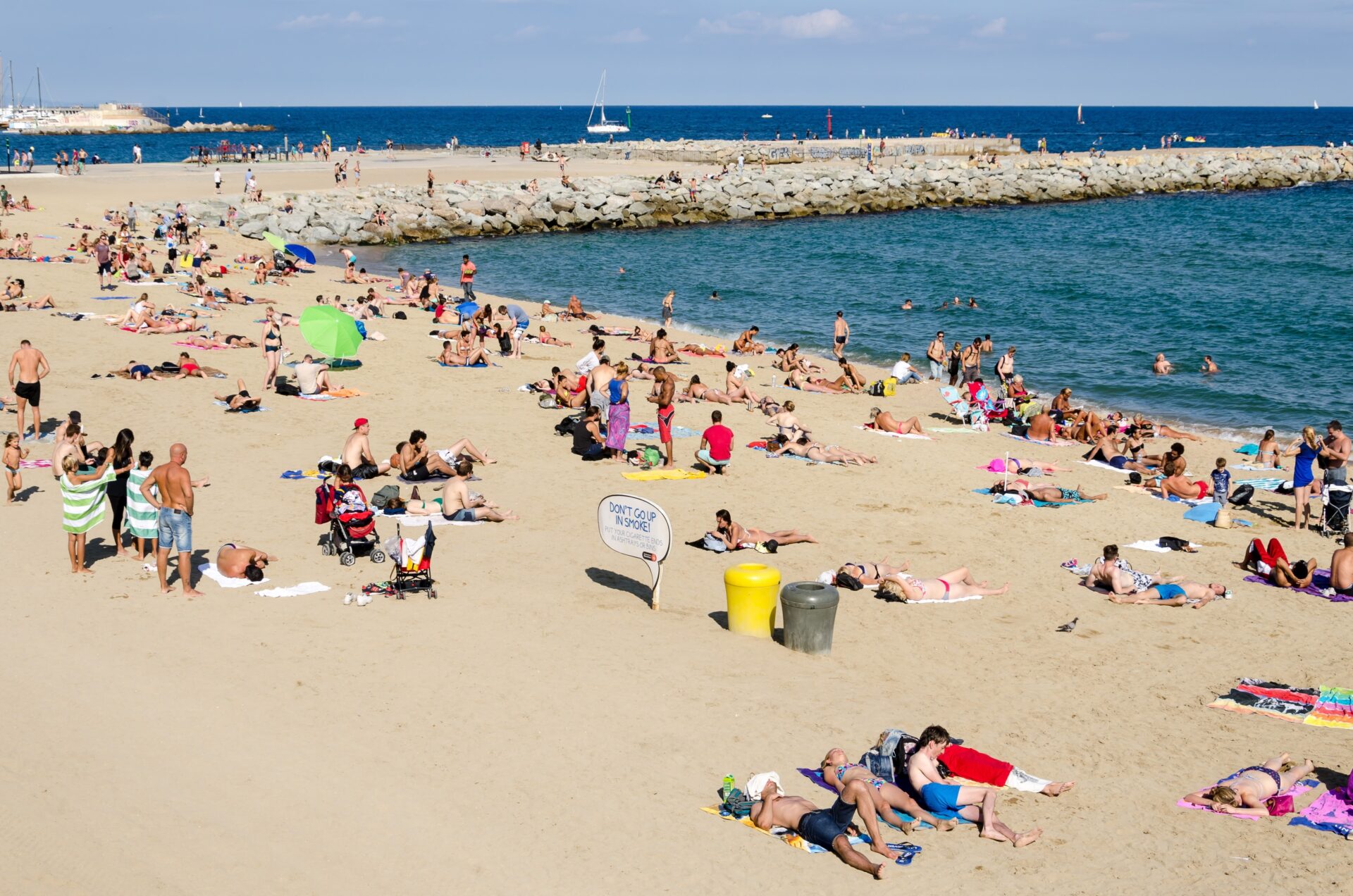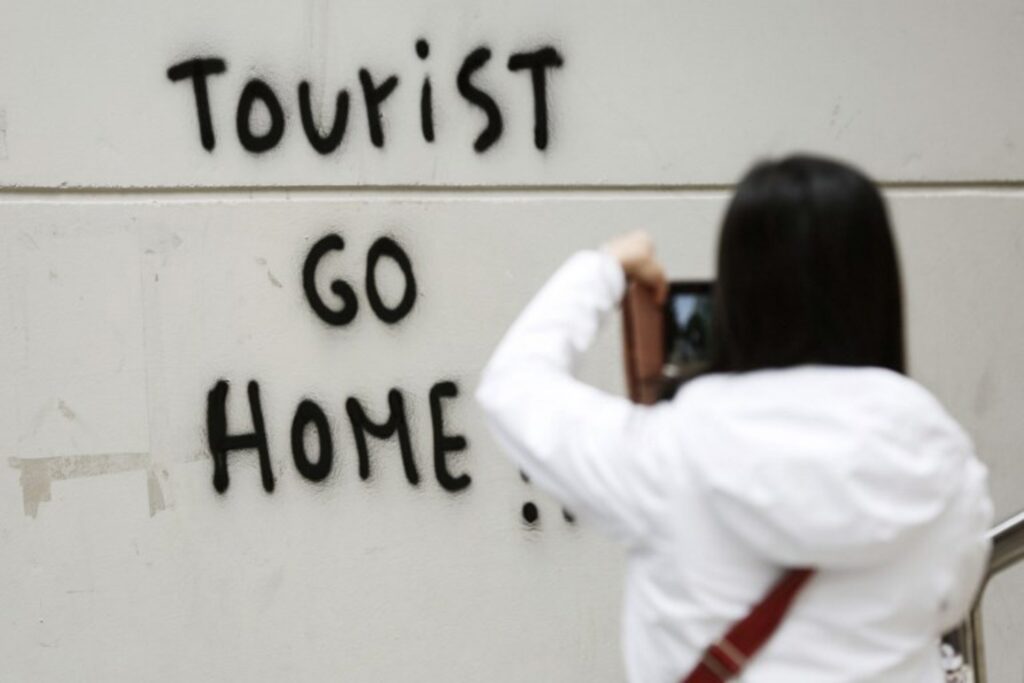No region in the world has a higher concentration of tourists than Europe but residents in many of the most popular EU cities are fed up with the flood of visitors, with particular concern that holiday accommodation drives up prices in the local property market.
These frustrations have been confirmed by analyses of the housing sector in areas affected by heavy tourism. But despite awareness about the conflict, bookings via short-term rental platforms such as Airbnb and Booking.com are soaring, with record numbers recorded in the EU in the first three months of 2024. The figures have again led to accusations of overtourism.
So-called "platform tourism" saw 123.7 million nights booked via Airbnb, Booking, Expedia Group or TripAdvisor in the first quarter of 2024. This represents a 28.3% rise compared to the same period in 2023, Eurostat data shows.
"The increase is a double phenomenon," tourism expert Bart Neuts (KU Leuven) told The Brussels Times. "On the one hand, there is just a worldwide growth in tourism after Covid-19. On the other, we see a shift in booking behaviour, which increasingly is done using online platforms."
While Airbnb was initially considered a "disruptive innovator" that allows individuals to rent out their spare rooms, the platform is now increasingly professional. "Real estate is more frequently being used for speculation on the holiday market," Neuts confirms.
(Not just) Mediterranean problems
Recent studies show that Airbnb is taking up scarce real estate in big cities, as well as being directly linked to higher neighbourhood rents. "This is the case in Brussels and Antwerp but is an even greater problem in Mediterranean areas such as Barcelona, Malaga and Lisbon."
In Brussels, Airbnbs are most concentrated in the touristic centre (Bruxelles 1000), the European district (Schuman and Leopold Park), and Ixelles and Saint-Gilles, where a VUB study found that for every Airbnb per 100 households, there is an average increase of 1.6% on the local rental market. With some neighbourhoods in central Brussels measuring Airbnb densities above 20, the cumulative impact on local housing is major.
However, Brussels does not even feature in the top ten cities affected by platform tourism, Eurostat's figures confirm. Southern European countries – particularly Spain, France and Italy, but Portugal and Croatia as well – were the most popular for short-term rental accommodation booked via online platforms.
"Unfortunately we see fewer individuals with an extra room and more professional players buying up buildings and putting them on the market the entire year – disrupting the local housing market as well as the hotel sector," Neuts said.
Furthermore, hotels require urban planning permits and are located in carefully chosen areas to minimise negative repercussions on locals. Airbnb properties are not subject to such regulations, meaning that listings can be created more easily and can advertise lower prices, attracting tourists from competing hotels.

Credit: Wikimedia Commons
In that respect, online platforms take up a large part of the profits in the hospitality sector without feeding this back into the local economy. At the end of July, Booking.com was issued a "monster fine" in Spain of €413.2 million for "abusing its dominant position". This was to the detriment of local Spanish hotels and travel agents. It also was found to impose "unfair trading conditions" on hotels that did use the platform's services.
For Neuts, this shows that the tide is slowly turning. In February, the EU approved its "Airbnb" law to protect affordable housing; various urban areas have also started introducing more stringent rules for short-term rentals.
"But they only have effect if the measures are easy to apply and are strictly monitored. In Amsterdam for example, the Airbnb supply stagnated and even dropped a little due to its uncompromising rules. Barcelona is seeing improvement because of its strict controls. But in cities such as Lisbon – where on paper there are rules but there are no controls – the situation is becoming untenable."
Overtourism
While tourism can provide a huge boost to local economies, preventing too many people from travelling to the same places at the same time is vital. "Overtourism is caused by different factors which must all be addressed together."
Venice, for example, is imposing a tax on tourists entering the city for a day. But Neuts says that this won't stop the city being swarmed by tourists. "At that point it's too late. People are already there, they are not going to turn back because they have to pay €10. That's (the equivalent of) two coffees at Starbucks."
Instead, Neuts believes that transport companies and the destinations themselves must realise how they can prevent a surfeit of visitors. They must ask what kind of tourists they wish to attract, how many accommodations should be permitted, and whether there is space to grow. They also should consider how to deal with cruise ships.
In addition, school calendars mean that holiday seasons are highly institutionalised. This presents another challenge in managing tourist flows. "It is a complex issue that cannot be solved by just addressing one element. Measures must be taken at the source and the destination – it is a both/and story."

Credit: Wikimedia Commons

